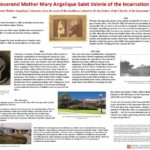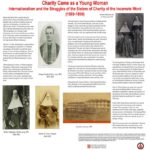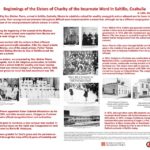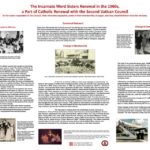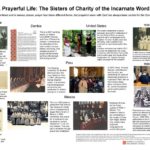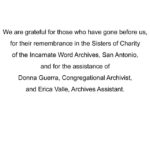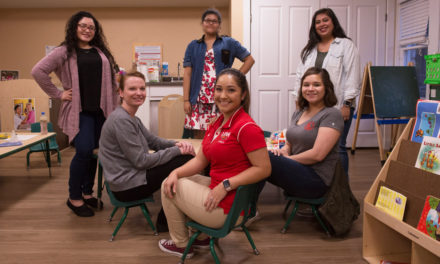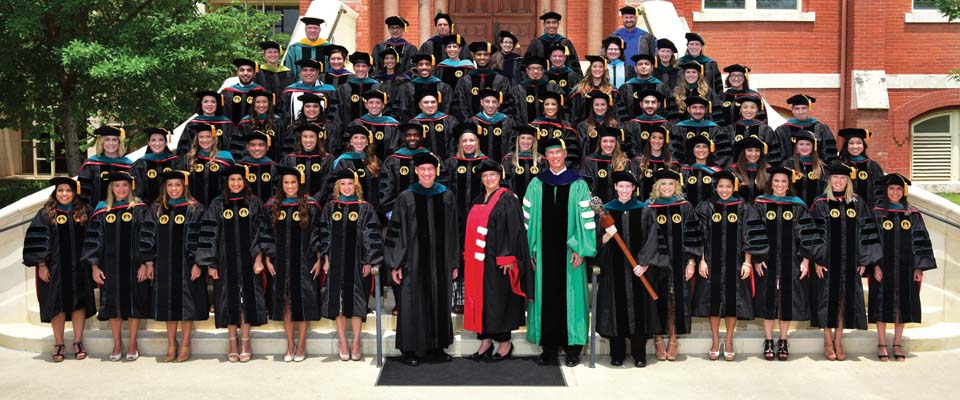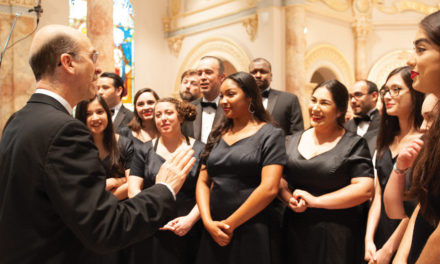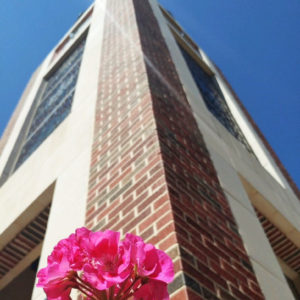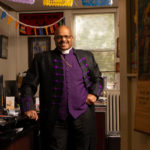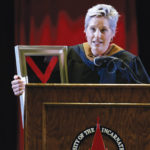
Sisters in 1964 on their way from San Antonio to establish a mission in Chimbote, Peru. Images courtesy of the Sisters of Charity of the Incarnate Word Archives
Throughout the textured lines of history, a spirit of adventure has remained as innate to the human experience as love or dreaming. From their early beginnings, this adventurous spirit has run deep in the founding congregation of the University of the Incarnate Word (UIW), the Sisters of Charity of the Incarnate Word.
Like Srs. Madeleine Chollet, St. Pierre Cinquin, and Agnes Buisson, who embarked in the 1860s from Lyons, France, to Texas to help the sick and poor, eight UIW students set out on a journey to explore the pioneering legacy of the congregation.
As part of a Religious Studies course offered this fall, led by Sr. Martha Ann Kirk, CCVI, professor of religious studies, and Donna Guerra, director of archives and records management for the CCVI Sisters, students researched the congregational archives and created an exhibit program, “Sisters’ Stories: A Living Legacy.” The budding researchers presented their discoveries to the community at the Sisters’ new Heritage Center located at the Village of the Incarnate Word on Dec. 4.
“While in conversation with Sr. Martha Ann, I communicated my desire to engage the UIW students with the materials available in the congregational archives,” explained Guerra. “She shared my enthusiasm for the effort, and the Sisters’ Stories class was born.”
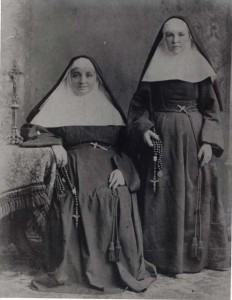
Cinquin and Chollet, circa 1870.
“First, I was feeling out things and learned that Donna believed that teaching research in archives is a valuable part of archives work,” Kirk agreed. “Then I was grateful when our department and dean were willing to allow a class with the history of our Sisters as the content.”
Kirk added that this is the first time such a class has been offered at UIW. She began the semester telling the students how fascinating it can be to conduct research and in the following class shared a drama that she had developed researching the Sisters’ letters.
The students also visited the Institute of Texan Cultures to consider the content there and methods of presenting. Educated by the Sisters, Dr. Angelica Docog, the institute’s director, talked to the students and even joined them for lunch at the Sisters’ convent. There students had the opportunity to converse one-on-one with Sisters.
“The students were fascinated by women who looked like sweet little grandmothers, but were as strong as marathon runners,” shared Kirk.
With the guidance of Kirk, Guerra, and Erika Valle, archives assistant, the students explored the approximately 1,000 linear feet of the archives and developed specific topics of the congregational history based on their interests and scopes of study.
“Each of the students taking the class chose a different topic that appealed to them,” said Mariella Metz-Yeverino, UIW English student. “We all began uncovering really interesting anecdotes and pieces of history that really showed the spirit of the Sisters of Charity of the Incarnate Word.”
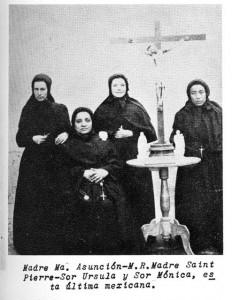
Cinquin and Sisters in Saltillo, Mexico.
For Metz-Yeverino, the topic she chose was personal. “I discovered the Sisters’ first ministry in Mexico began in Saltillo, Coahuila, where my mother is from, and I felt that this connection was really special so I began looking into the history more,” recalled Metz-Yeverino.
“Promises to Keep: A History of the Sisters of Charity of the Incarnate Word,” written by Sr. Margaret Patrice Slattery, CCVI, served as an invaluable resource for the students. In fact, Slattery spoke about the book before the students’ presentation.
Topics included a number of milestones in the congregation’s history ranging from the origins of the Sisters’ health care ministry with Reverend Mother Mary Angelique to religious persecution in Mexico at the turn of the century to the Sisters in the 1960s to an endearing look at three Sisters’ love of writing poetry, among others.
“How interesting to examine the place of prayer for the Sisters’ over time – from the early, regular use of traditional, European-derived prayers to the marked transition since Vatican II to the creation of unique liturgies and prayers as common practice,” said Guerra.
“What is fascinating and profound to me is that the archives provide the evidence that congregational ministries and practices adapt and change with social and cultural needs over time,” continued Guerra, “yet the purpose remains constant – to make God’s love, as revealed in the person of Jesus, a real and tangible presence in the world.”
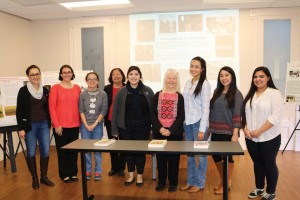
Metz-Yeverino (second from left) and fellow students pose with Kirk (center) before presenting “Sisters’ Stories: A Living Legacy” at the Heritage Center.
Metz-Yeverino said she found the Sisters’ passion and dedication fascinating and evident in the writing and pictures included in the archives.
“It truly helped me to see the vision of the university and how the Sisters exemplified this in everything they did and continue to do,” said Metz-Yeverino. “I have learned that the Sister’s legacy still lives on in the university and we are all a part of it.”
“Sisters’ Stories: A Living Legacy” is currently on display in the Mabee Library, and Kirk said that they would happily lend the exhibit posters for display.
By Brance Arnold ’10 MA




